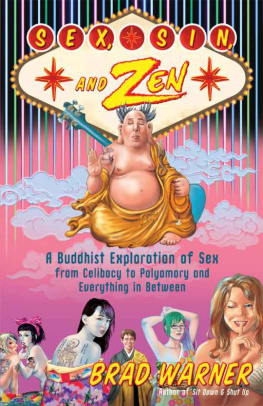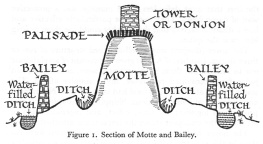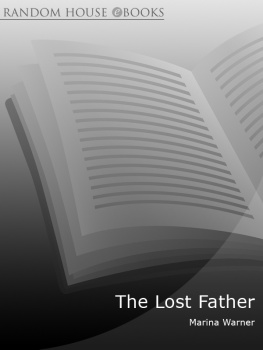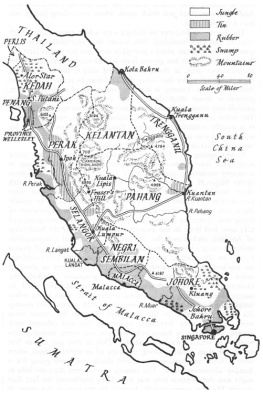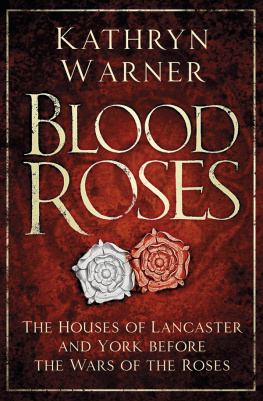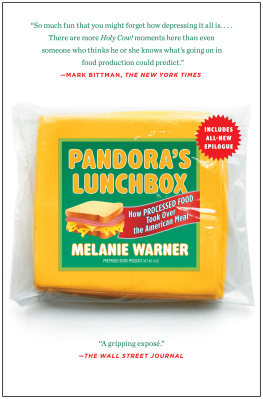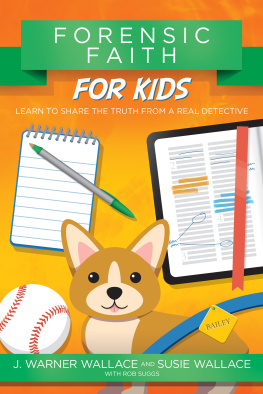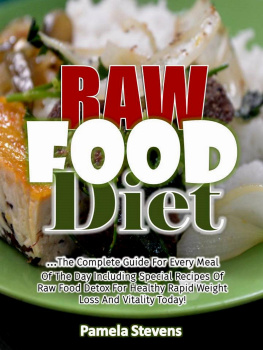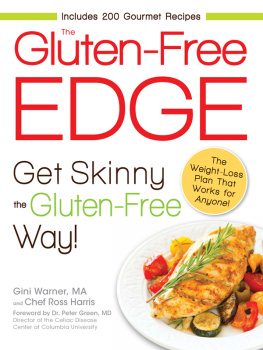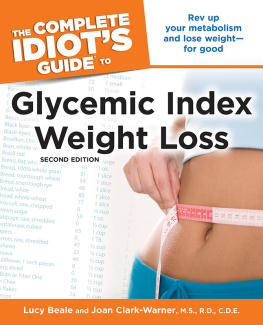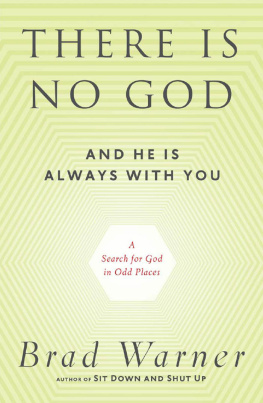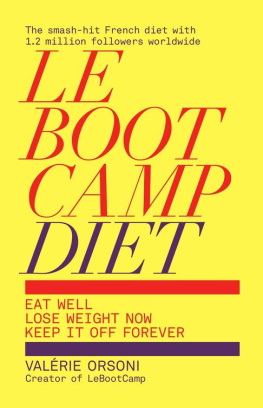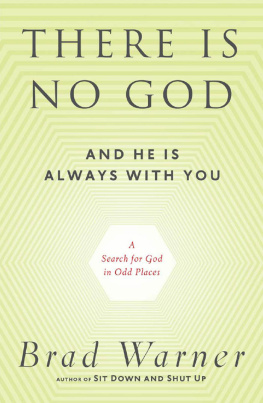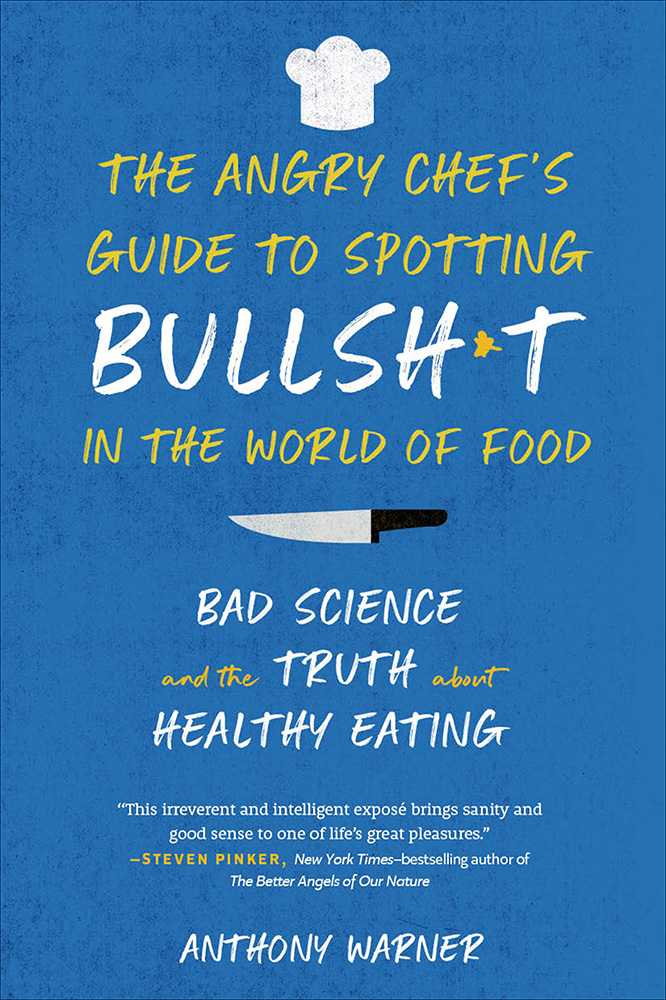
THE ANGRY CHEF'S GUIDE TO SPOTTING
BULLSH*T
IN THE WORLD OF FOOD

BAD SCIENCE
and the TRUTH about
HEALTHY EATING
ANTHONY WARNER

To endure uncertainty is difficult,
but so are most of the other virtues.
BERTRAND RUSSELL
Prologue
H ello reader. Thank you for choosing this book. Clearly you are a very sensible individual with an interest in food, looking to learn something new. Thats good, because I am a chef with a passion for cooking, a background in biological science, and a fascination with the way our diet affects our health.
Perhaps you are hoping to read about a single hidden secret to healthy eating, or the key to sustained weight loss. Maybe you are looking for a list of ten essential, health-transforming superfoods that you need to include in your diet. I do wish I could provide you with these things, a few simple rules and easy solutionswouldnt that be nice?but unfortunately life is just not that straightforward. If it was and I knew all the answers, I would most likely be driving up to my brand-new yacht in a solid gold Ferrari.
In this book, you will not find a list of rules to follow for a happy, healthy life. I will not attempt to break down common foodstuffs into lists of things that either cause or cure cancer. In fact, if this book achieves its goal, it is likely to leave you knowing less about the science of food than you do right now. Or at least less than you think you know.
The Angry Chef was first revealed to the public in 2016, but he can be traced back to a couple of years before. I am a UK-based development chef with an interest in nutrition and was attending a food and health industry event at a large London conference center. There was a panel discussion on the subject of What is healthy eating? and I noticed that a then little-known health blogger and Instagram star was due to appear. I was vaguely aware of her and the clean-eating trend she represented and was interested to hear what she had to say. Even an out-of-touch technophobe like me couldnt ignore the fact that, in this modern information age, the rise of online stars has the potential to profoundly affect the behaviors and beliefs of the millennial generation. The fact that a number of these new stars were focused on eating healthily seemed encouraging.
It did not take long for me to start worrying about the sort of unregulated advice that some of these new stars might be spreading. Although the blogger in question was likeable, intelligent, even informed in some areas, some of the things she was saying were a little strange. At one point she claimed that anything cooked at home is bound to be healthier than something made in a factory, which I expected to raise the hackles of many in attendance, especially as this was a food industry event. As I looked around, the audience seemed to be nodding sagely, in complete agreement with her argument, and I felt for a moment as if I was trapped in some late 1950s sci-fi movie, a dystopian future where I am the only one in the crowd who can see the false prophet.
I left the event slightly confused, but not yet particularly Angry. I was curious about some of the strange beliefs of the clean-eating movement and started to do some research. The more I read, the more incredulous I became at the mangled misunderstanding of science and the absolute nonsense that underlies some of these trends.
Ever since, I have been down the rabbit hole, transported into a world of strange pseudoscience, arbitrary rejection of modernity, and dangerous dumbfuckery that has come to dominate the discussion on food and health. Clean eating started as a fringe movement but has grown into a huge and unrepentant tide of nutri-nonsense. The health and wellness lobby is taking over, relegating the opinions of nutritional scientists, dietitians, and public health officials to the sidelines. Their books dominate the bestseller lists, their websites receive millions of hits, and their Instagram accounts deliver endless pictures of kale smoothies and quinoa bowls to armies of adoring followers. The more I look, the more my eyes have been opened to this bizarre and sometimes dangerous world: a world where lies are told about food every day.
In the two years since that event, my fascination and revulsion at clean eating have moved on considerably. In many ways that particular blogger was the more respectable tip of a dangerous, unregulated, and ever-growing iceberg. As the trend soars in popularity and new stars fight for space in an increasingly crowded market, the advice being doled out by poorly qualified and unaccountable fools has had a tendency to become more and more extreme.
The one thing that unites these voices is that they all spread their message with great certainty. When they say that lemon water is alkalizing to the body, the reason that people buy this lunacy is that they are so very certain that this is the case. Look into their eyes and you can see that they truly believe. Throughout this book we investigate some of their claims and try to understand what underlies these false beliefs and how they have managed to become so popular.
As the wellness movement has grown, it has become increasingly powerful. Sometimes it seems that there are precious few moderating voices in a world gone mad. To make matters worse, the madness no longer stops at health bloggers. As we shall see, bandwagon-jumping celebrities, medical doctors, and even an increasing number of specialized academics are susceptible, blinded by the light of the wellness stars and desperate to serve our insatiable demand for certainty.
Unlike the purveyors of pseudoscience that I rail against, I offer you no certainty, no easy answers, no simple stories. In food science, as in all science, progress often depends not on the conviction of experts, but on our ability to accept what we dont know. This book is an investigation of bad science in the world of food, and part of that is understanding that there are gaps in our knowledge. Unfortunately, the nature of our minds can make this a very difficult thing to do.
The Bertrand Russell quote at the start of the book is one of my favorites and underlines many of its messages. Sometimes in life we have to endure uncertainty and act in the absence of evidence. Although the science around food and health is complex, we still have to eat every day. To have a healthy relationship with our food, we need to learn to accept that we dont know everything. I am not saying that we should just shrug and eat jelly bean sandwiches or deep-fried cake for breakfast without thought of the consequence. There are some clear links between food and health and our dietary choices have an impact on many serious diseases. But we have to look at the evidence, and often the available evidence is not good enough for anyone to get up in the pulpit. Which brings us to the first piece of the puzzle...
Part I

GATEWAY
PSEUDOSCIENCE


